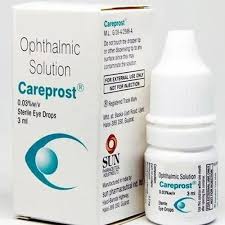Uses
Ophthalmic medications are drugs specifically designed for application to the eyes. They are used to treat various eye conditions, such as infections, allergies, inflammation, dryness, glaucoma, and many others. These medications come in different forms, including eye drops, ointments, gels, and inserts. Ophthalmic drugs typically work by reducing inflammation, fighting bacterial or viral infections, lubricating the eyes, or reducing eye pressure.
Benefits
The benefits of using ophthalmic medications are extensive. They can provide relief from uncomfortable eye symptoms, such as itching, redness, and dryness. Ophthalmic drugs can also help prevent eye infections and treat existing ones. They are crucial in managing chronic eye conditions, such as glaucoma or macular degeneration. Furthermore, ophthalmic medications can improve vision and overall eye health. However, it is essential to follow the instructions provided by your healthcare professional to ensure optimal results.
Side Effects
Ophthalmic medications, like any drug, can cause side effects. Not everyone experiences side effects, and they can vary depending on the specific medication and individual. Common side effects may include temporary stinging or burning sensations upon application, blurred vision, watery eyes, or slight discomfort. These side effects are usually mild and should subside within a few minutes. However, if you experience severe or persistent side effects, such as severe eye pain or vision changes, it is crucial to seek immediate medical attention.
Warnings
Prior to using any ophthalmic medication, you should be aware of certain warnings and precautions. It is essential to inform your healthcare provider about any known allergies or sensitivities you may have to medications or other substances. Additionally, provide a complete list of your current medications, including over-the-counter drugs and dietary supplements. Some ophthalmic medications may interact with other medications or medical conditions, so it is crucial to disclose this information. Follow the recommended dosage and frequency of use, and do not exceed the prescribed amount unless instructed by your healthcare professional. If you wear contact lenses, ensure you follow the instructions regarding the removal and reinsertion of lenses after applying ophthalmic medications.
FAQs
Yes, certain ophthalmic medications are approved for use in pediatric patients as well as adults. However, the dosages may differ depending on the age and weight of the individual. It is always best to consult a healthcare professional before administering any medication to children.
The onset of action can vary depending on the specific medication and the eye condition being treated. Some ophthalmic medications may provide immediate relief, while others may take several days or weeks to show noticeable improvement. It is important to follow the prescribed treatment plan and be patient while waiting for the medication to take effect.
Some ophthalmic medications are compatible with contact lenses, while others are not. It is important to read the instructions provided with the medication or consult your eye care professional. In certain cases, you may need to remove your contact lenses before applying the medication, and wait a specific period before reinserting them.
In some cases, alternative treatments such as warm compresses, artificial tears, or lifestyle modifications may offer relief from certain eye conditions. However, it is essential to consult with a healthcare professional to determine the most appropriate treatment option for your specific condition.
Some ophthalmic medications can be purchased over the counter without a prescription. However, certain medications may require a prescription from a healthcare professional. It is advisable to consult a healthcare provider to ensure the proper selection and usage of ophthalmic medications.


